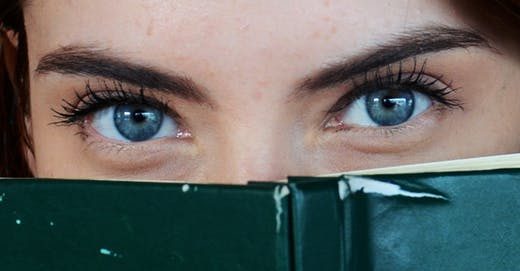
In one of the more poignant philosophical scenes in Westworld, William decides to stop holding himself back from the park and decides to love Dolores despite his commitment to his fiance back home. He passionately tells her:
I’ve been pretending my whole life. I’ve been pretending I don’t mind, pretending I’m alone. My life’s built on it. And it’s a good life. It’s a life I’ve always wanted. But then I came here and I get a glimpse, for a second, of a life in which I don’t have to pretend, a life in which I can truly be alive. How can I go back to pretending when I know what this feels like?
The scene touches on the undercurrent of the entire Westworld theme park: what would you do if there were no consequences for your actions? including no moral judgment for whatever you do? It’s an interesting question that a truly self introspecting person ought to ask themselves from time to time. The scene grabbed my attention from a more theological standpoint however. I had to ask myself: is J.J. Abrams a closet Mormon? LOST felt a whole lot more like a Mormon’s take on the afterlife than a Catholic purgatory (as he claimed) and Westworld feels like a Mormon spin on the importance of the pre-existence. In a typical Mormon pre-existence discussion, a believer is likely to make the observation that people come to the earth with a veil of forgetfulness so they cannot see, hear, or observe their creator – for what purpose? So they can experience life without knowing that someone is constantly looking over their shoulder, judging their every action, and determining what kingdom they may be worthy to inherit in the afterlife. The purpose of Westworld? to allow people to experience life knowing that no one is looking over their shoulder or judging any of their actions. The concepts are virtually identical, possibly excepting the Westworld expectation that everyone will delve into their more base selves to experience what it feels like to be … well … morally questionable. After all, people who are more self integrous wouldn’t be very interested in spending $40,000 a day to “live without limits” because they are already living life (relatively) sans inhibition. Although Westworld delves into other morally engaging questions (like whether or not intimacy with a cyborg is cheating on your significant other just because the glorified blow up doll seems like a real person), I found this question of whether or not we are truly ourselves at any time when we believe someone else is watching over our shoulders an interesting one. I delved lightly into this question with my drabble: the Mask but Westworld offers a pragmatic vehicle to actually test ourselves to see how thick our mask really is.
I’ve heard tale that success on reality TV shows hinges on how authentic the cast can be while knowing they are being filmed on national TV. In short, successful reality TV stars have to boast a compelling amount of integrity to be themselves regardless of who is watching them. As an introspecting person then, it seems quite valuable to ask: if my life was being filmed for national TV, how would I behave? Would I be myself all of the time, most of the time, or only occasionally? A wise author once noted that we all have unpublished chapters from our lives we never want others to read. But are those chapters time periods we have left behind us “lessons learned” or are those chapters a record betraying ongoing public/cultural rebellion? From a cultural perspective, this is an intriguing question. From a moral/spiritual perspective, this is an imperative question. Are our lives reflections of who we truly are or are they reflections of who we think the world will find permissible? Are we slaves to the fear of being judged by those around us or are we free to live our lives as we choose? How would you be different if you felt zero constraint to conform to the expectations of anyone around you – whether that included the government, peers, family, or influential members of your community?
Interestingly, William in Westworld determines that he is more himself in the theme park than he is in the real world. His “mask” in reality is philanthropy and benevolence while his real persona in the theme park is a ruthless, nearly heartless man in black. While I doubt most people live such duplicitous lives, the exploration of this question through William is an interesting one and it highlights the question well (despite the cheating tactic of presenting his story from William’s point of view when in fact we later learn that his storyline was being told from Delores’ point of view). So … what do you think? How much does this dynamic affect our lives? Would you be more like William if you had the opportunity to live a life without limits or would you pretty similar to whom you are already? Are there appropriate areas in our lives that we should hide from the rest of society or are hidden areas of our lives merely masks to hide our true selves from the world because we know our true selves are morally unacceptable – or reprehensible?



1 Response
[…] spend their life in charitable endeavors – what would they do there? As I noted in a previous post on Westworld, people who are self integrous wouldn’t be very interested in spending $40,000 a day to “live […]